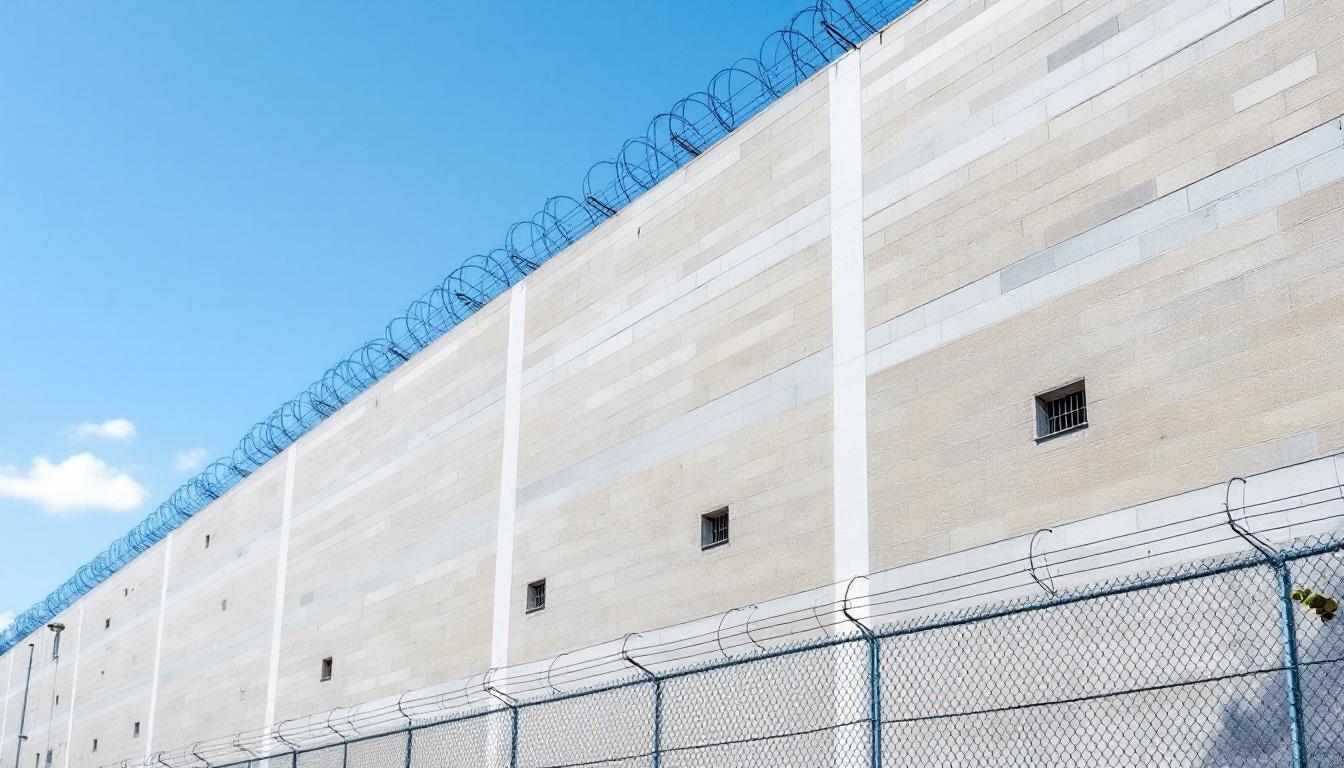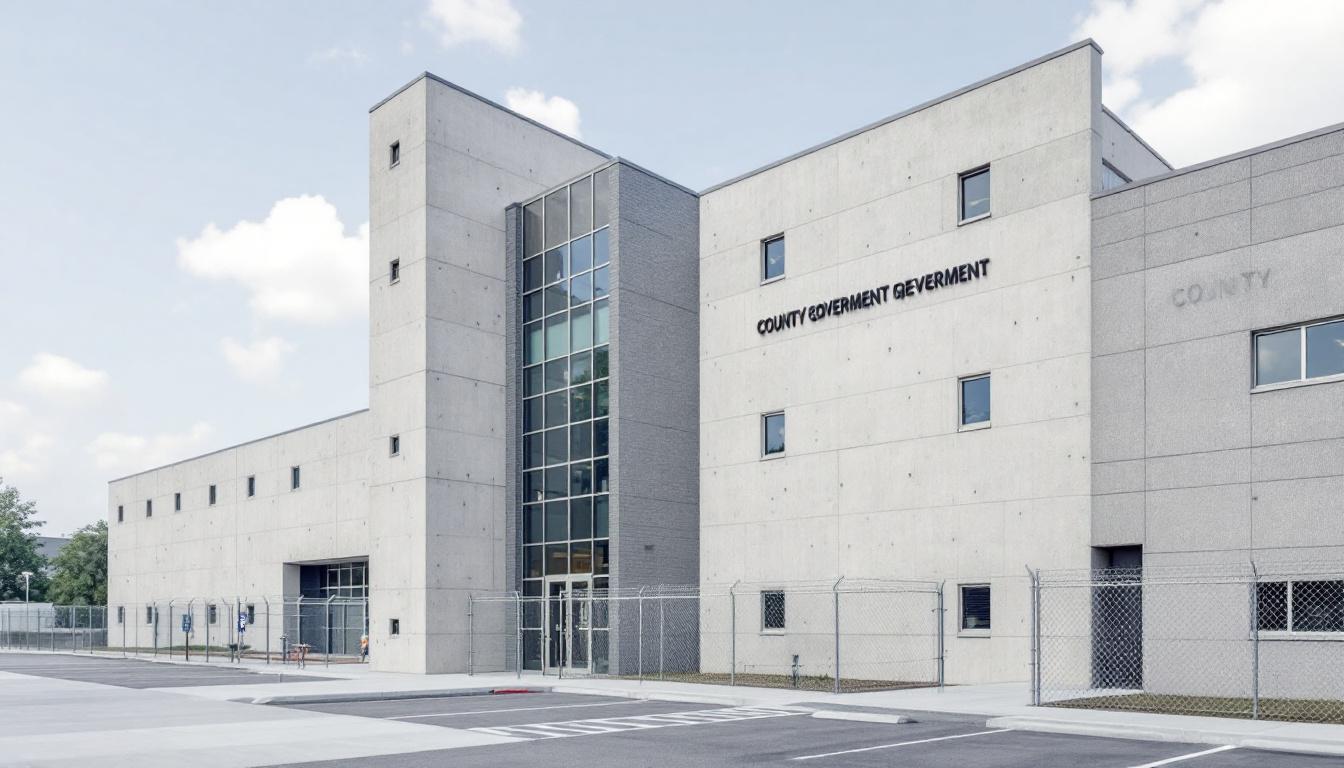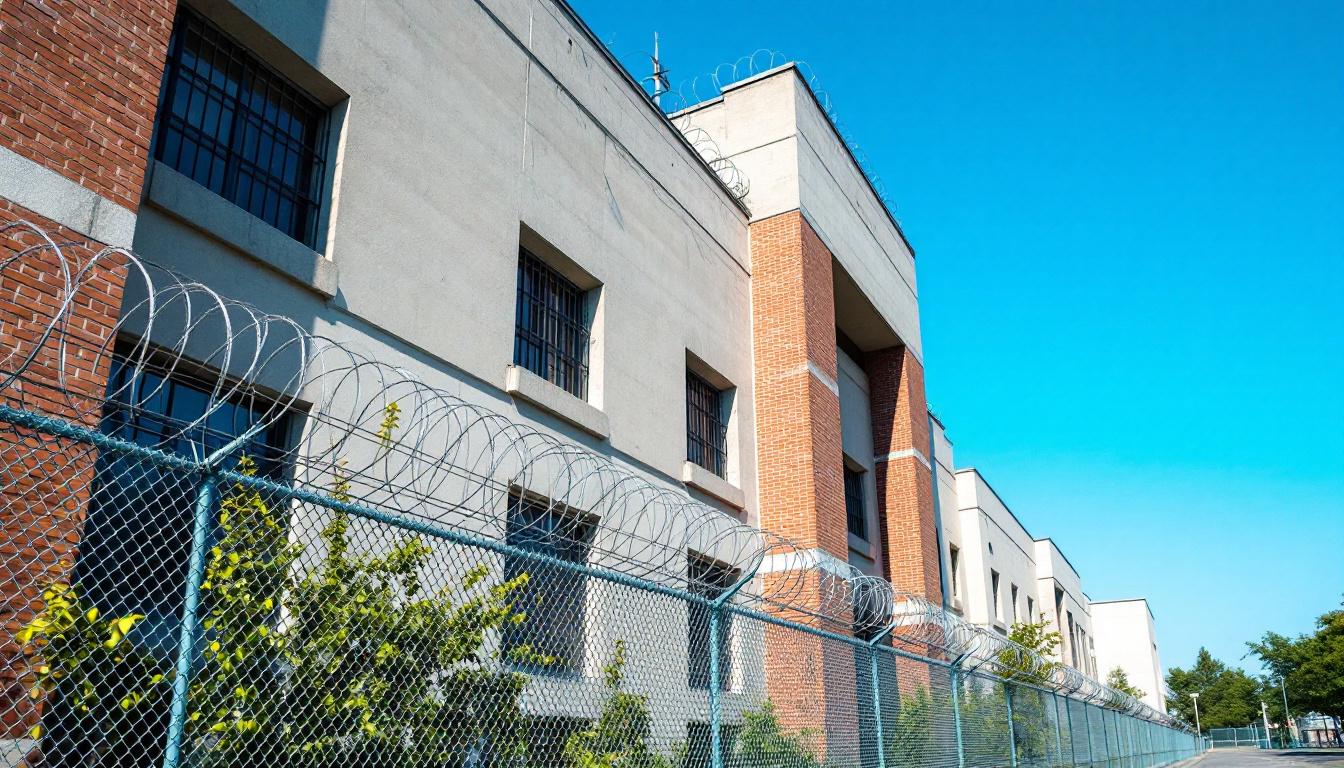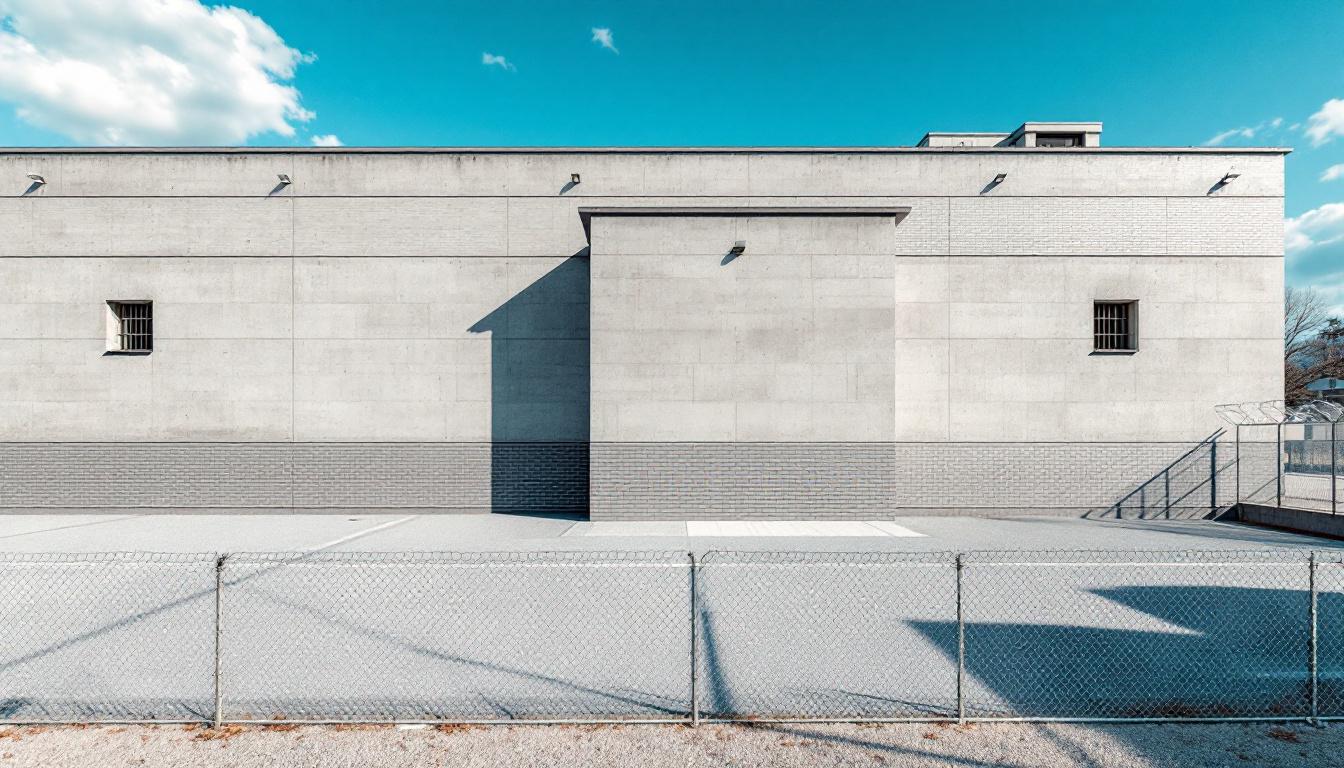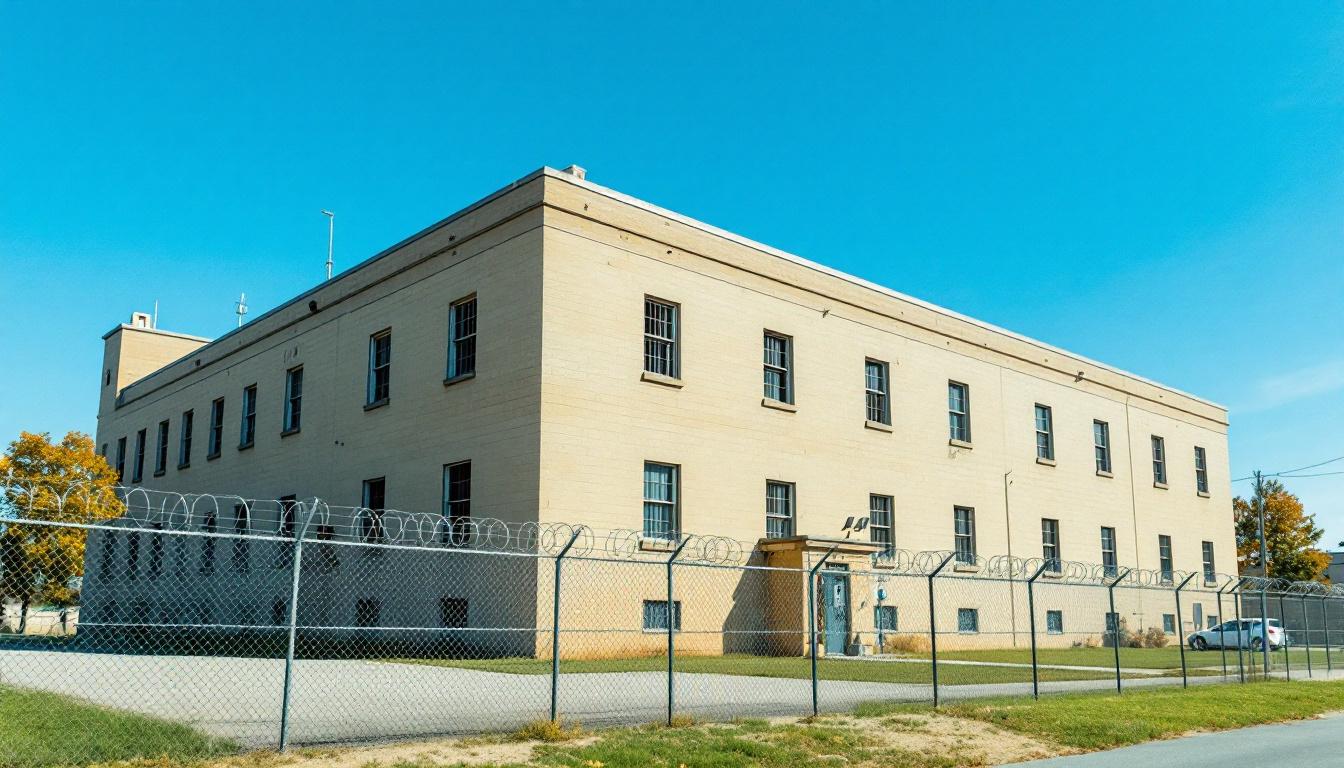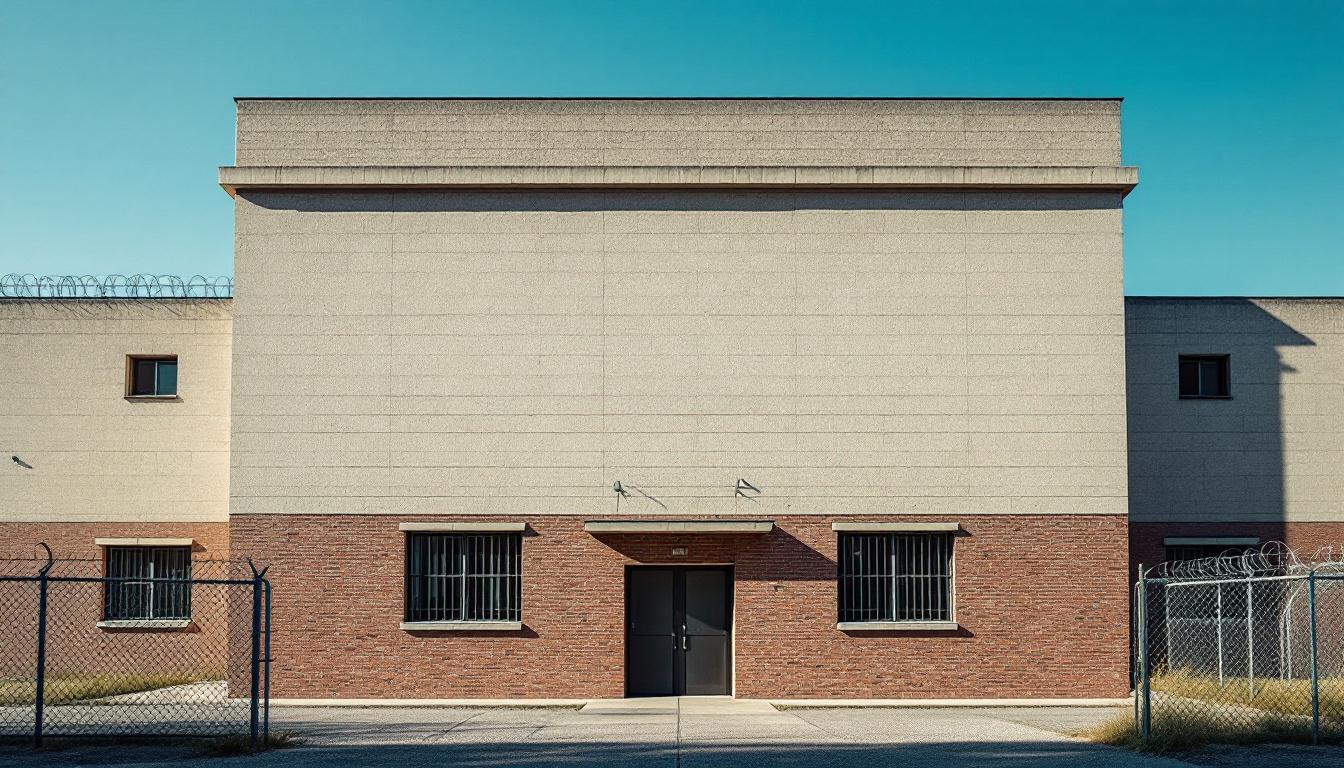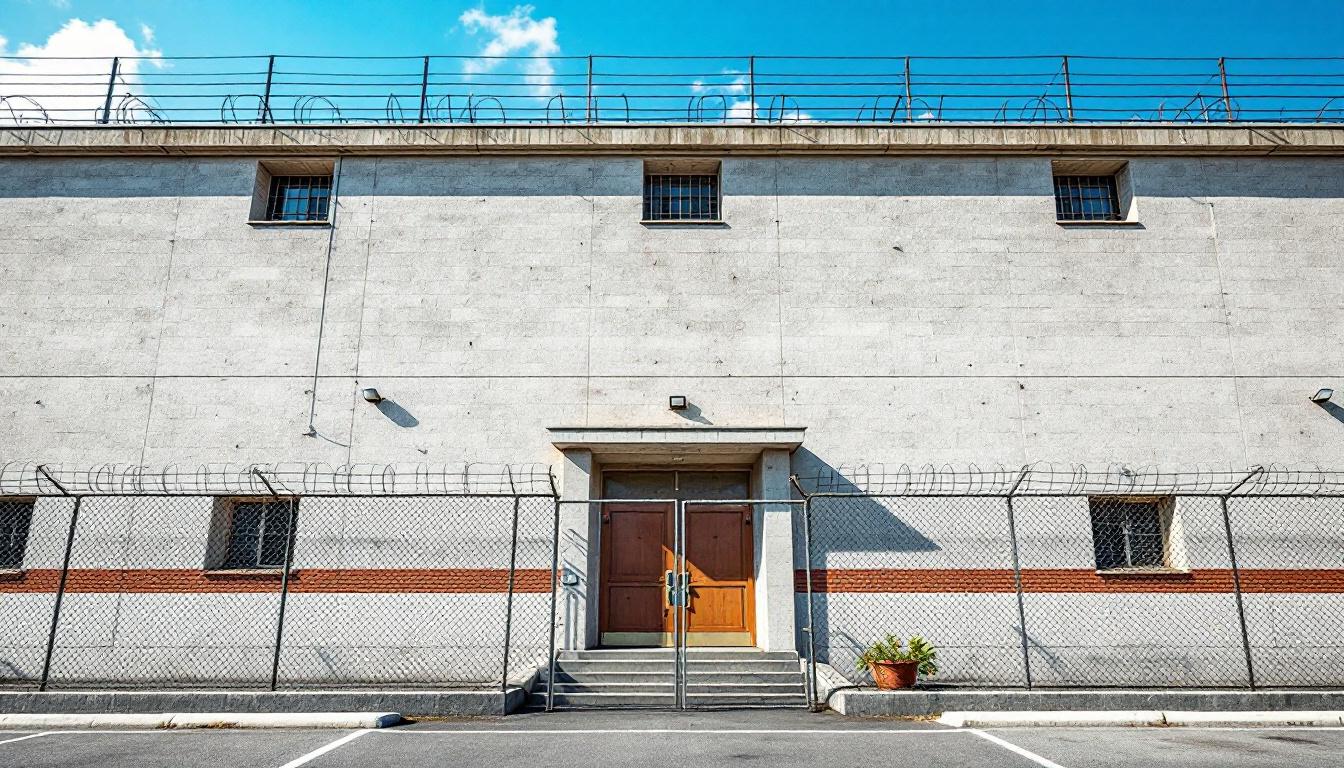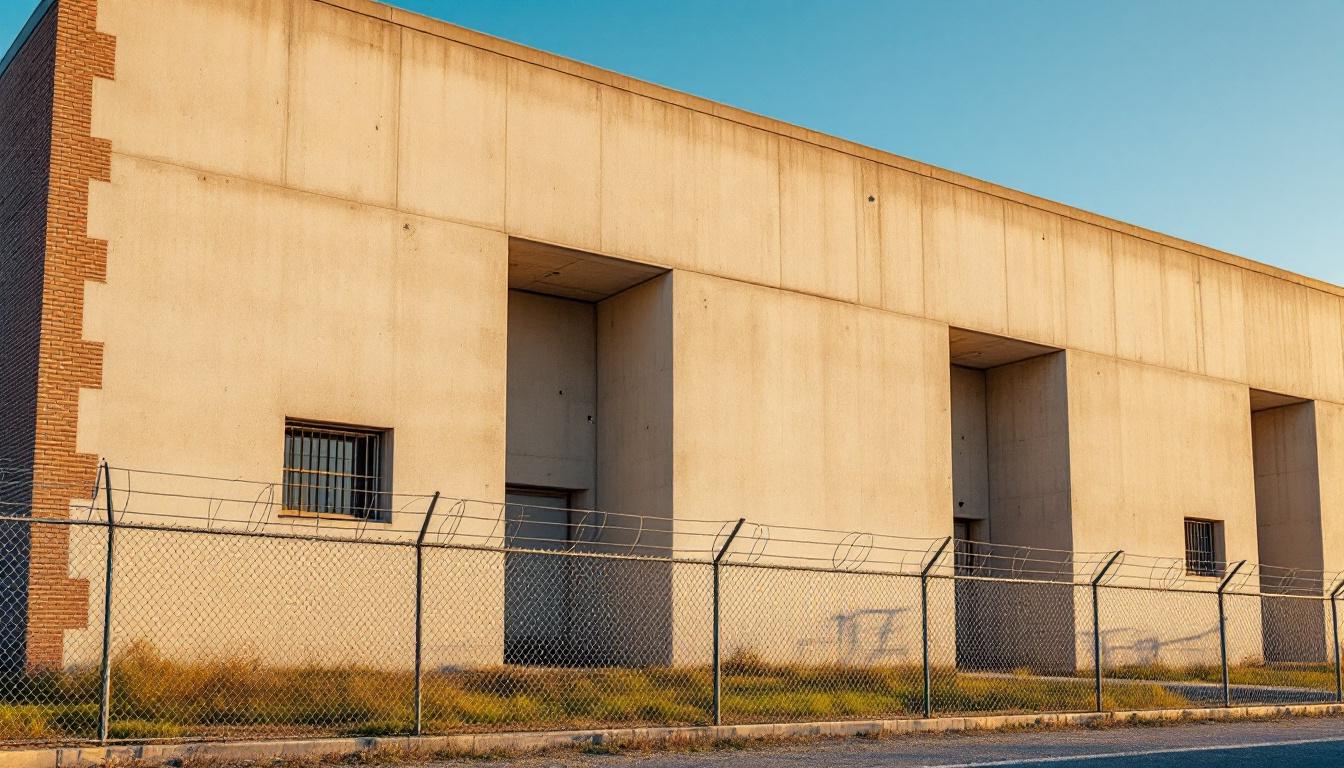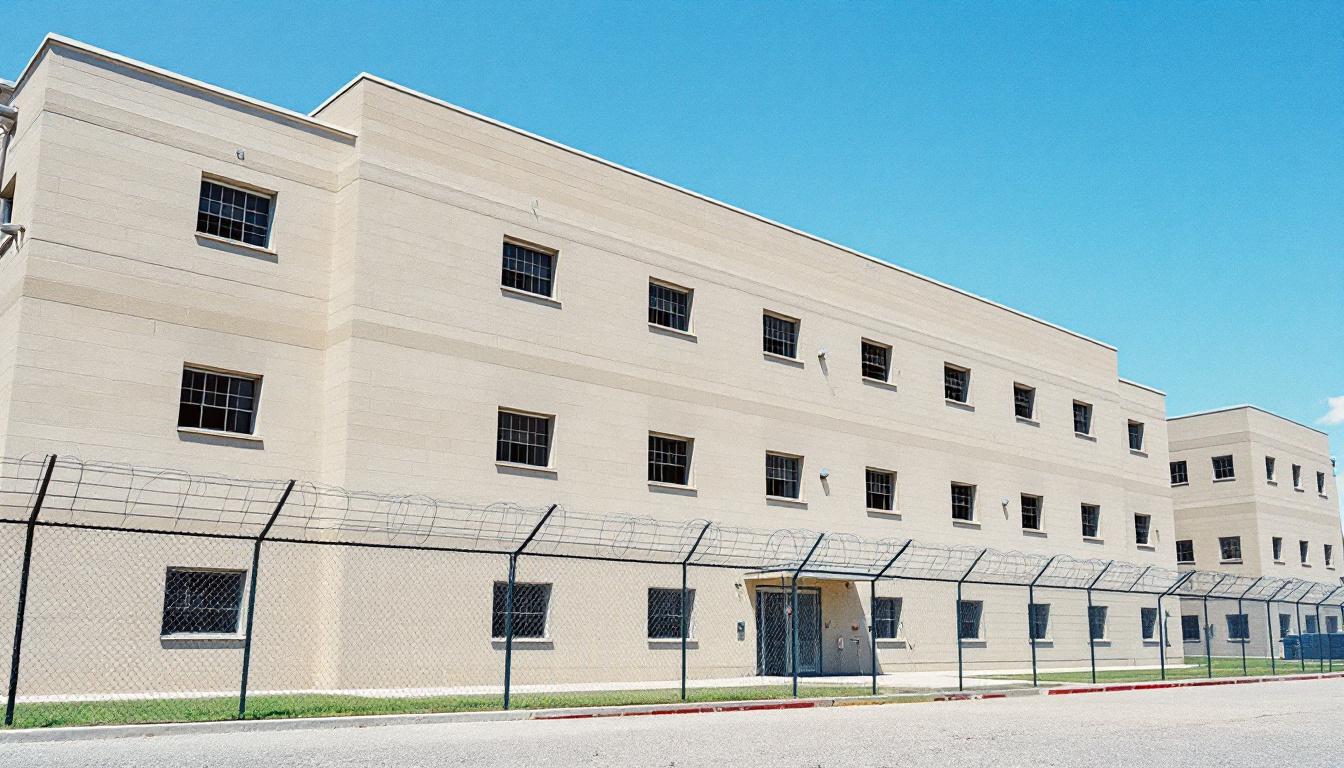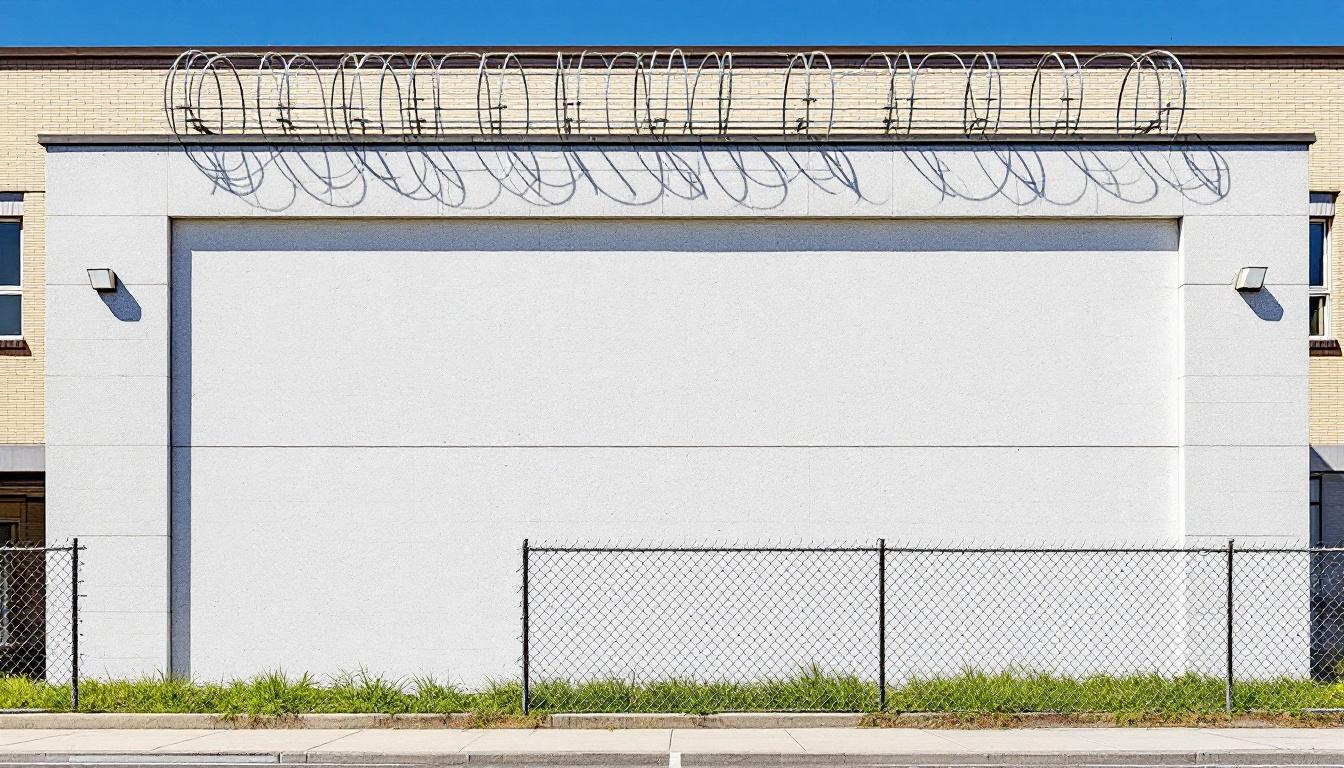
Quick Navigation
How to contact an inmate at Aransas County Detention Center
This comprehensive guide will walk you through how to connect with an inmate at Aransas County Detention Center. Follow the steps below to find an inmate and send letters and photos:
- Search for the inmate using our search tool below
- Create your account or log in to Penmate
- Write your message (up to 6,000 characters)
- Send instantly - inmates receive printed copies daily
Find an Inmate
Search for an inmate to start communicating today
Tip: You can search by first name, last name, or inmate ID number
To contact a person at Aransas County Detention Center start by searching for the person on the official facility website. Perform a search by following these steps:
- Step 1: Enter their first name and last name into the search form and click "Search"
- Step 2: Locate their inmate record
- Step 3: Write down their Inmate ID and any housing information provided
Important! Be sure to enter the person's full name. Nicknames should not be used.
How to Send Messages to Inmates

You can use your phone or computer to send emails, letters, and photos to an inmate. Messages are sent electronically to inmate tablets or kiosks at the facility. If you would like to send a message, start by searching for an inmate at Aransas County Detention Center.
Sending Photos and Postcards

A great way to send love and support to a loved one at Aransas County Detention Center is to send photos and postcards. It only takes a few minutes to send photos from your phone and it makes a huge difference. You can also mail postcards with words of support and inspiration, or design your own postcard for special moments like birthdays and holidays.
Important! Be sure not to send any explicit photos or they may not be approved by the facility. You can also use a photo printing app like Penmate to make sure your photos are printed at the correct size (4x6 or 3x5) and are mailed according to the rules and regulations of Aransas County Detention Center.
Frequently asked questions about Aransas County Detention Center
-
How long does it take to deliver a message?
If you're sending an email message your letter is usually delivered within 24-48 hours. For messages sent via mail you should expect delivery within 3-7 days. All messages will need be approved by Aransas County Detention Center.
-
How much does it cost to send a message to Aransas County Detention Center?
You can send a message free using your phone or mail a message via USPS for the price of a $0.60 stamp and envelope. You can also purchase credits or e-stamps from services starting at $1.99.
-
What services can I use to contact an inmate at Aransas County Detention Center?
Penmate
You can use Penmate to send letters and photos to an inmate from your phone. It's an easy way to stay in touch during your loved one's incarceration. Use the inmate locator to find an inmate's location and contact information, then you can send messages within a few minutes.
Securus messaging
Securus may be another option for communicating with an inmate at Aransas County Detention Center. You can create a friends and family account and purchase credits to send messages. All messages will be reviewed and must be approved by the facility.
JPay
Some county jails and state prisons may support sending messages with JPay. You must register an account with the system, find your loved one, and purchase stamps to send messages. For some locations you can also attach photos.
Smart Jail Mail
You may also check if Smart Jail Mail is available at Aransas County Detention Center. Smart Jail Mail is operated by Smart Communications and has contracted with some state and county jails. After purchasing credits, your messages and photos are sent to the facility, printed out, and then handed out to your loved one.
-
What is the mailing address of Aransas County Detention Center?
Mailing address:
Aransas County Detention Center
811 E Concho St
Rockport, TX 78382
Phone: (361) 790-0168Business hours:
- Monday: Open 24 hours
- Tuesday: Open 24 hours
- Wednesday: Open 24 hours
- Thursday: Open 24 hours
- Friday: Open 24 hours
- Saturday: Open 24 hours
- Sunday: Open 24 hours
-
What are the visiting hours at Aransas County Detention Center?
Visiting hours at Aransas County Detention Center vary by housing unit and security level. Generally, visits are scheduled on weekends and holidays, with some facilities offering weekday visits. Contact the facility directly at (361) 790-0168 or check their website for the current visiting schedule. Visits typically last 30-60 minutes and must be scheduled in advance.
-
What items are prohibited when sending mail to Aransas County Detention Center?
Prohibited items typically include: cash, personal checks, stamps, stickers, glitter, glue, tape, staples, paperclips, polaroid photos, musical or blank greeting cards, hardcover books, magazines with staples, and any items containing metal or electronics. Only send letters on plain white paper with blue or black ink. Photos must be printed on regular photo paper (no Polaroids). Always check with Aransas County Detention Center for their specific mail policies.
-
How do I send money to an inmate at Aransas County Detention Center?
You can send money to an inmate at Aransas County Detention Center through several methods: 1) Online using JPay, Access Corrections, or the facility's approved vendor, 2) Money orders mailed directly to the facility with the inmate's name and ID number, 3) Kiosks located in the facility lobby, or 4) Over the phone using a credit or debit card. Fees vary by method, typically ranging from $2.95 to $11.95 per transaction.
-
Can I schedule a video visit with an inmate at Aransas County Detention Center?
Many facilities now offer video visitation as an alternative to in-person visits. At Aransas County Detention Center, video visits may be available through services like Penmate, Securus Video Connect, GTL, or ICSolutions. Video visits typically cost $10-20 for 20-30 minutes and must be scheduled in advance. You'll need a computer or smartphone with a camera and reliable internet connection. Contact the facility for their specific video visitation policies and approved vendors.
-
What identification do I need to visit an inmate at Aransas County Detention Center?
All visitors must present valid government-issued photo identification such as a driver's license, state ID, passport, or military ID. Minors must be accompanied by a parent or legal guardian who can provide the minor's birth certificate. Some facilities require visitors to be on the inmate's approved visitation list, which may require a background check. Contact Aransas County Detention Center for specific ID requirements and visitor approval procedures.
-
How can I find out an inmate's release date?
To find an inmate's release date at Aransas County Detention Center, you can: 1) Use the online inmate search tool if available, 2) Call the facility's records department, 3) Contact the inmate's case manager or counselor, or 4) Have the inmate provide this information during a call or visit. For privacy reasons, some facilities only release this information to immediate family members.
Facility Overview
Contact Information
Aransas County Detention Center811 E Concho St
Rockport, TX 78382
Phone: (361) 790-0168
Official Website

About Aransas County Detention Center
Serving the fundamental mission of maintaining public safety while providing secure detention services, this TX correctional facility operates as an integral component of the coastal community’s justice infrastructure. Located in Rockport along the scenic Texas Gulf Coast, Aransas County Jail functions within a region where maritime industries and tourism intersect with the practical needs of law enforcement and judicial proceedings.
The facility’s geographic positioning within Aransas County reflects the broader challenges and opportunities present in Texas’s coastal correctional landscape. Rockport’s location along the Gulf of Mexico brings comprehensive considerations to detention operations, as the area experiences seasonal population fluctuations and weather-related challenges typical of coastal regions. The county jail typically maintains collaborative relationships with various community organizations and service providers, recognizing that effective correctional management often depends on strong partnerships with local resources. These connections may include coordination with healthcare providers, substance abuse treatment programs, and reentry support services that serve the broader coastal Texas region.
Those incarcerated services generally encompass basic detention operations alongside programming that addresses the specific needs of the local population. The facility’s approach to rehabilitation and preparation for reintegration often reflects the rural-coastal character of Aransas County, where inmates may eventually return to communities centered around fishing, tourism, and small-business enterprises. County jail operations typically emphasize maintaining security protocols while facilitating access to legal representation, family visitation, and essential services that support both immediate detention needs and longer-term community safety objectives.
Programs & Services
Personal growth opportunities within Aransas County Jail emphasize skill development and meaningful engagement for those incarcerated. The facility’s approach centers on providing structured pathways that may help individuals build practical capabilities while maintaining a secure environment. These offerings typically focus on equipping participants with tools that support both personal development and potential reintegration into the community.
Educational and vocational components often include hands-on training opportunities that allow those incarcerated to develop marketable skills. Carpentry programs may furnish practical experience in construction techniques and tool usage, while broader vocational training initiatives typically cover various trade-related competencies. These structured learning environments often provide participants with the chance to engage in productive activities that build both technical knowledge and work discipline.
In addition to these skill-building opportunities, support services may include work programs that offer structured daily routines and responsibility-building experiences. Faith-based initiatives typically provide spiritual guidance and community connection for those who choose to participate. Chaplaincy programs often furnish counseling support and religious services, creating additional avenues for personal reflection and growth. These comprehensive offerings work together to create an environment where those incarcerated may find multiple pathways for self-improvement and preparation for their eventual return to the community.
Daily Life & Visitation
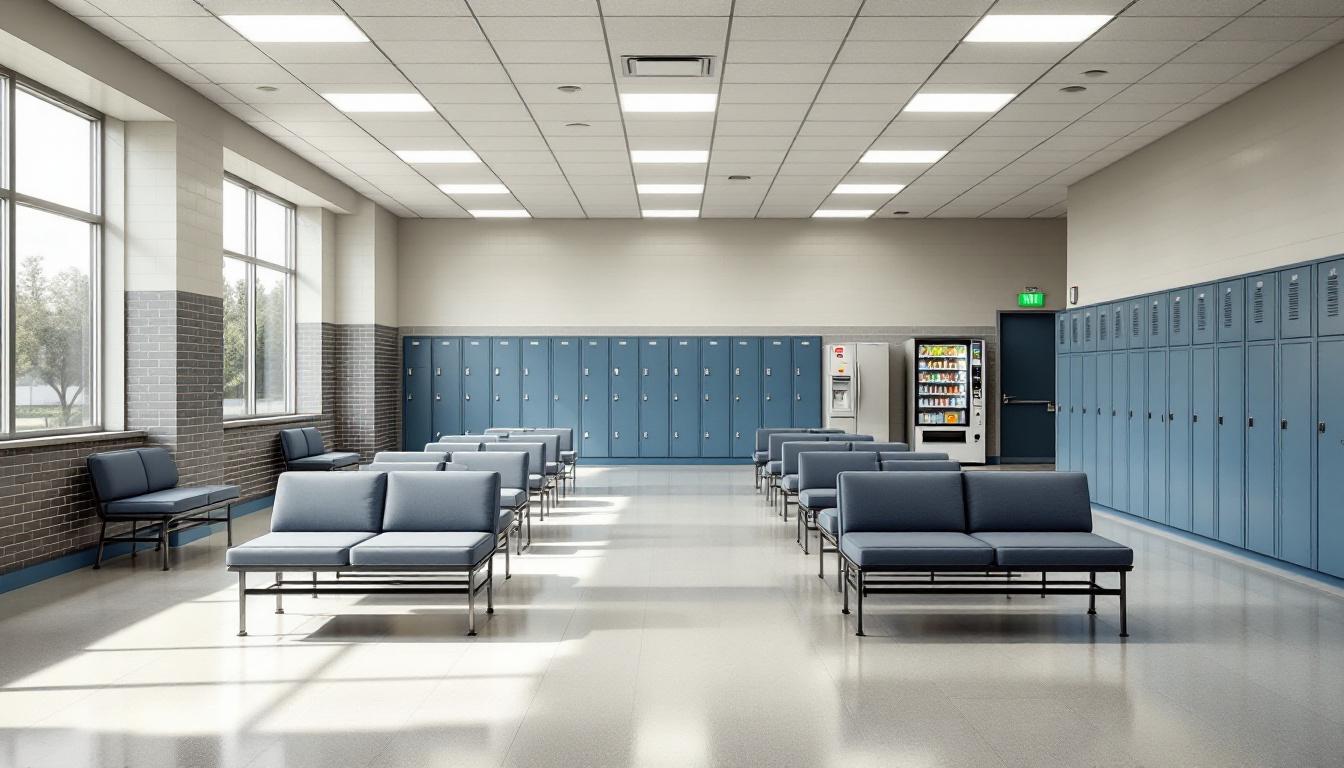
Family connections and social bonds remain central to the experience of those incarcerated at the Aransas County Jail, where maintaining relationships with loved ones helps provide stability during a challenging time. At present, the facility actively structures daily routines around regular meal times, recreation periods, and programming opportunities that allow individuals to interact with one another in supervised settings. Those incarcerated typically begin their day with morning counts and breakfast service, followed by periods designated for housing unit activities, outdoor recreation when weather permits, and various programs designed to furnish educational or therapeutic support.
Living accommodations generally consist of shared housing units where individuals may be assigned to dormitory-style settings or smaller cells, depending on classification levels and available space. In addition to this basic housing structure, the facility typically provides common areas where those incarcerated can engage in approved activities such as watching television, playing games, or participating in group discussions. Meals are usually served in designated dining areas or delivered to housing units, with menu options that aim to meet basic nutritional requirements while accommodating certain dietary restrictions when possible.
Despite this structured environment, the facility often furnishes opportunities for those incarcerated to maintain meaningful connections with their families and communities through scheduled visitation programs, telephone access, and mail correspondence. Work assignments within the facility may include kitchen duties, maintenance tasks, or administrative support roles that help individuals develop skills while contributing to daily operations. Programming schedules typically encompass educational classes, substance abuse counseling, and religious services that encourage personal growth and community building among participants, helping to create a sense of purpose during their time at the facility.
Ready to Connect?
Start communicating with your loved one today
Search for an Inmate
